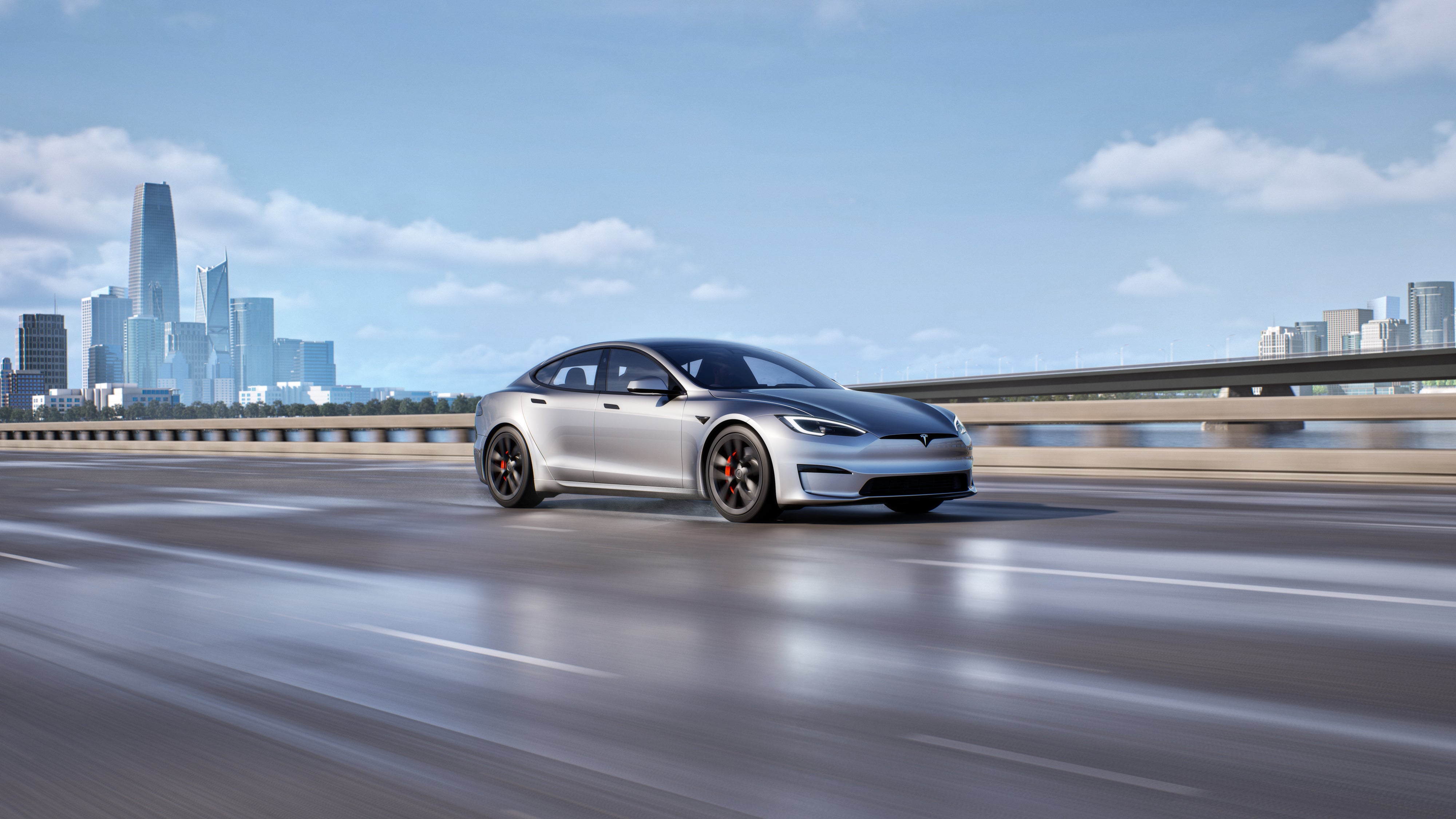How long do EV batteries last? Your electric car battery questions answered
How long do they last and are they expensive to replace? All of your EV battery questions answered.

Your support helps us to tell the story
From reproductive rights to climate change to Big Tech, The Independent is on the ground when the story is developing. Whether it's investigating the financials of Elon Musk's pro-Trump PAC or producing our latest documentary, 'The A Word', which shines a light on the American women fighting for reproductive rights, we know how important it is to parse out the facts from the messaging.
At such a critical moment in US history, we need reporters on the ground. Your donation allows us to keep sending journalists to speak to both sides of the story.
The Independent is trusted by Americans across the entire political spectrum. And unlike many other quality news outlets, we choose not to lock Americans out of our reporting and analysis with paywalls. We believe quality journalism should be available to everyone, paid for by those who can afford it.
Your support makes all the difference.How long do electric car batteries last? There is perhaps no tougher question to answer in motoring right now, followed closely by, ‘can EV batteries be replaced?’ and ‘how much do they cost?’. These are all huge questions, and will become increasingly important as the battery warranties provided by car manufacturers start to expire in the years to come.
On the topic of EV battery longevity, there is unfortunately no definitive answer. In the same way you can’t be sure exactly how long the battery in your smartphone will last, the battery life expectancy of an EV will vary depending on how it is used – and that includes how the car is driven, but also how it is charged throughout the course of its life.
The good news is, EV batteries are lasting for far longer than expected. We recently drove a ten-year-old Tesla Model S with a massive 250,000 miles on the clock – and the only major parts that had been replaced were its tyres and carpet mats. What’s more, the battery still had 84 per cent of its original capacity remaining. That means the car could still cover around 250 miles per charge – which is plenty for many, many drivers, give the average daily mileage in the UK is about 25 miles.
So, while EV batteries do deteriorate over time – that’s just how the chemistry of lithium batteries works – age or milage aren’t reasons enough to be fearful of older electric cars.
How long do EV batteries last?

A typical EV battery warranty lasts for eight years or 100,000 miles, whichever comes first. If the battery fails during that time, and the car has been serviced correctly, the manufacturer should offer to replace or repair the battery at no cost to the owner.
However, most EV battery warranties come with an important caveat; the maximum charge capacity of the battery can fall to a certain percentage in those eight years, without it being considered broken. This is usually pegged at 70 percent. In other words, if within eight years an EV’s battery can still charge to 70 percent of its original claimed capacity, then it is considered to be working correctly. As we mentioned earlier, we recently drove a decade-old Tesla with a battery health of 84 per cent.
It is also important to remember that EV batteries do not suddenly stop working after eight years. The Tesla Model S is now over a decade old and many early examples have several hundred thousand miles on the clock. Put simply, EV batteries are lasting longer than expected. But since even the oldest cars are still relatively new, in modern car terms, it isn’t yet possible to say for certain how long EV batteries can last.
Data published in September 2024 by Geotab, a transportation telematics company, claims the “vast majority of EV batteries will outlast the usable life of the vehicle”. The company says how, with a sample size of 5,000 EVs representing 1.5 million days of ownership, the average battery degrades by 1.8 per cent per year. Some electric cars, the company says, have batteries that degrade by just one per cent each year. Even taking the average figure of 1.8 per cent, it would take over 16 years for a battery to degrade from 100 to 70 per cent.
“With these higher levels of sustained health, batteries in the latest EV models will comfortably outlast the usable life of the vehicle and will likely not need to be replaced,” said David Savage, Vice President for the UK and Ireland at Geotab. He added: “The fact is that a 1.8% decline in battery health is unlikely to have a significant impact on most driver’s daily vehicle needs, and this number will only come down further with new EV models and improved battery technology.”
Are EV batteries expensive to replace?
Yes. There’s no way around this one, at least for now. If you find yourself in the unfortunate position of having to replace an EV battery out of warranty, it’ll likely cost a great deal. However, since EVs are still relatively new, few batteries have been replaced outside of the standard eight-year warranty.
The cost (to the manufacturer) of battery replacements carried out under warranty can be eye-watering. We have heard stories of a Porsche Taycan battery costing over £50,000 to replace, but thanks to the warranty that bill was covered by the manufacturer.
Older luxury cars with large engines can also throw up enormous bills later in life, but instead of going to the manufacturer for a new engine, second-hand replacements can be sourced and fitted much more cheaply. It is to be expected that used battery packs (from EVs that are damaged in some other way, for example) will gradually enter the marketplace as more EVs age. This should offer a solution when the first of the eight-year warranties come to an end.
It is also highly likely that EV battery repair will become more common in the years to come, giving owners a more affordable alternative to replacing the entire pack.
Can EV batteries be recycled?
Yes, they can. Either they are entirely dismantled and their materials (including lithium, nickel and often cobalt) are individually recycled, or the batteries can be given a new purpose.
For example, EV batteries no longer suitable for a car can be used to partially power a home, storing energy generated by solar panels. Some electric boats also use so-called second-life EV batteries. These use cases are possible because, while the battery can no longer charge and discharge quickly enough for use in a car, it can function at the more leisurely rates required by a home or a low-speed boat.
Can EV batteries be repaired?
Yes. EV batteries sometimes break because of an ancillary component failure. This can be related to the battery’s management system or onboard charger, or even the software controlling it, and not necessarily the cells themselves. Some independent car garages are starting to specialise in EV repair and, often through trial-and-error, are gradually finding solutions to battery failure.
It is worth remembering that we are still in the very early days of electric cars, and for now repairs are generally carried out under warranty.
Can I buy an extended EV battery warranty?
Yes. Car warranty companies are increasingly offering products to cover electric vehicles. So, while the original maufacturer warranty usually covers the battery for eight years or 100,000 miles, whichever comes first, an extended warranty can often be purchased, increasing this coverage to 12 or even 15 years, or in some cases up to 150,000 miles. We’ve even seen EV warranties that provide cover for up to 200,000 miles. Make sure you do your research though, as most third-party EV warranties can only be taken out when a battery’s health is above a certain percentage.




Join our commenting forum
Join thought-provoking conversations, follow other Independent readers and see their replies
Comments